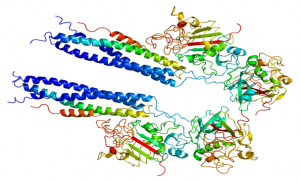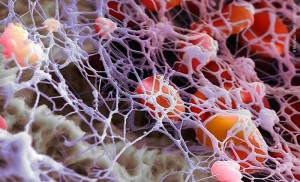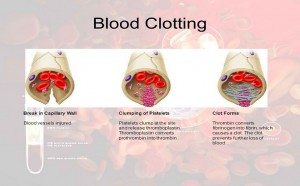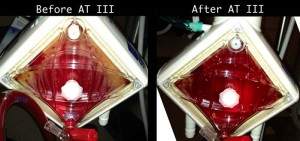
Before we proceed with the essential aspects, let us first define fibrinogen. It is well known as an important protein in the body that helps stop bleeding with its key role in blood clot formation. The protein is manufactured in the liver.

Fibrin is a strong insoluble protein produced by the body in response to bleeding. Whenever tissue damage (wound) results in bleeding, a soluble protein found in blood plasma called fibrinogen becomes converted into fibrin molecules by the action of a clotting enzyme called thrombin. The fibrin molecules combine together to form long fibrous chains that … Continue reading “10 Essentials About Fibrin”

Thromboplastin is an enzyme that helps in blood coagulation with a function of catalyzing prothrombin to thrombin conversion. It is a very intricate enzyme that can be found in diverse tissues including the lung, brains, and more predominantly the blood platelets.

Antithrombin is also known as Antithrombin III or AT 3, a small protein molecule that plays an important role in helping to control blood clotting in the body by inhibitory regulation of thrombin. It is a natural blood thinner produced by the liver.

A wound is caused by skin breakdown or trauma resulting to physical damage or injury on the body of a person. This damage can lead to excessive loss of blood. The injury may be superficial on the skin but sometimes it can be very deep. In this case, the flesh of the body is damaged.

Bleeding Ulcers Several ulcer sufferers experience the condition painless and appears to be normally comfortable even with the presence of underlying stomach ulcers. This can be potentially harmful for it increases the risk towards developing complications considering that it places the individual unaware of the ulcer and the need for early treatment when no pain … Continue reading “10 Symptoms of Bleeding Ulcer”

Most nosebleeds that occur in the anterior or frontal aspect of the nose only involve one nostril and not as severe as the posterior type. With the posterior type of nose bleed, blood may sometimes drain back into the throat, causing potential distress.








